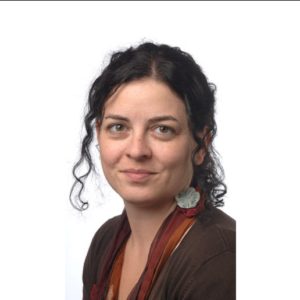 About to turn the page into a New Year, I am very happy to share with you the exciting outlooks on what will undoubtedly be one of the most marked ECTS activities in 2020: our annual meeting. The 47th European Calcified Tissue Society Congress will be held in just a few months in Marseille, the largest historical port city in southern France, located right at the Mediterranean Sea.
About to turn the page into a New Year, I am very happy to share with you the exciting outlooks on what will undoubtedly be one of the most marked ECTS activities in 2020: our annual meeting. The 47th European Calcified Tissue Society Congress will be held in just a few months in Marseille, the largest historical port city in southern France, located right at the Mediterranean Sea.
The Scientific Programme Committee for the ECTS 2020 meeting has been preparing an attractive and diverse assembly of sessions directed at clinical researchers, basic and translational scientists, and allied health professionals working in the musculoskeletal field.
As the Basic Science Co-chair for the committee, it is my pleasure to announce the part of the programme outline that has been designed to bring an outstanding set of speakers and exciting topics to the basic and translational researchers in our field. One of the key points of attention will be to offer multiple symposia, workshops and interactive sessions focused on the newest technology developments. Keeping track of the newly emerging and rapidly advancing basic science technologies is a cornerstone of the state-of-the-art and innovative research going on in our field, hence we wish to give you profound opportunities to catch-up on the latest advances, including those in single-cell level transcriptomics, proteomics, integrative data analysis and deep-tissue confocal microscopy, all designed to allow high-resolution skeletal analyses at the cellular and molecular levels. A second hallmark of this year’s basic/translational programme will be to look at the skeleton as a broad functional unit with integrated compartments exerting diverse interactions and influences on each other. In this respect, we will hear from world-leading experts on how specific bone and bone marrow microenvironments sustain the skeleton’s functioning as a niche for skeletal stem cells and for hematopoiesis, but also for metastasizing tumor cells seeding into the bone milieu. We will learn about stromal and osteogenic stem and progenitor cell populations in the marrow, and their links with marrow adiposity and fibrosis seen in pathological settings, and with the vast regenerative potential of bone and applicability in developmentally-inspired tissue engineering approaches.
Along the lines of its traditions, ECTS reaches out and connects, and bridges the latest advances in basic/translational research with clinical relevance and progresses in the treatment of bone diseases. Each congress day, top-class keynote speakers join the basic and clinical state-of-the-art in a Plenary Symposium. One Symposium, organized in partnership with the Cancer and Bone Society (CABS), will focus on prostate cancer and bone, addressing the regulation of the metastatic phenotype by the bone microenvironment as well as the management and prevention of bone complications. For another Symposium we teamed up with the Bone Marrow Adiposity Society (BMAS) to bring you an update of the origin, fate, and fundamental characteristics of bone marrow adiposity and its clinical consequences. For the traditional ‘Insights from Outside’ we invited experts from the muscle field, and the annual ‘What is New?’ session will this year be dedicated to new basic science technologies and new therapeutic strategies.
The basic SPC is also proud to present a Basic Science Workshop each day, in which renowned speakers will present the most recent advances in hot topic areas of investigation. One Workshop will focus on the bone marrow environment and stromal cell lineages, with leading world-class experts bringing their innovative research to Marseille. A second session will introduce the latest on extracellular vesicles from the basics onto applications in bone repair, in partnership with the International Society for Extracellular Vesicles (ISEV). A third cutting-edge basic science workshop will be a joint session with the Tissue Engineering and Regenerative Medicine International Society (TERMIS-EU), in which you will learn more about the fundamentals of skeletal stem cells and anabolic strategies for bone repair and regeneration.
To hear and share the newest scientific information, receive feedback from peers, and enjoy seeing students and trainees being given the opportunity to communicate their work to the international bone research community, we cordially invite all of you to submit your own ongoing research results as abstract to the ECTS2020 meeting. The deadline for abstract submission is January 13th, with plenty of possibilities to apply for Travel Grants and New Investigator Awards. Your contribution and active participation will enrich the programme with exciting oral communications and poster sessions, vibrant discussions, and opportunities for brainstorming among experts and peers with similar interests.
An excellent ancillary programme, with Basic Science Updates including on the role of bone as partaker of integrated biology and pathophysiology, a selection of Meet-the-Expert sessions, a vibrant pre-congress day and the ECTS Academy New Investigator programme will further offer you a wide range of sessions and interactive working group assemblies for knowledge exchange on specific scientific topics and for sharing technologies, all designed to help each other deepening our understanding of bone biology and pathology.
I hope this summary of the basic/translational programme highlights for the upcoming conference articulates our enthusiasm and encourages you to explore the Scientific Programme in full on the ECTS Congress website (https://www.ects2020.org/programme/).
So, mark your fresh 2020 calendars and join us for the annual ECTS meeting, May 15-19 in Marseille! You may expect and look forward to a wonderful event with top-science, vigorous networking, warm social gatherings, and a lovely Spring feeling in the Mediterranean coast climate of the “oldest city of France”, Marseille.
Looking forward to seeing you at the meeting,
With collegial regards,
Christa Maes for the ECTS 2020 Scientific Programme Committee team
